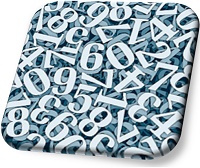Time limit 2000/4000/4000/4000 ms. Memory limit 65000/65000/65000/65000 Kb.
Question by Ibrahim Mesecan.
The Cubic Difference
 For a scientific study, your professor needs
to find the smallest two consecutive numbers whose cubic
difference is bigger than or equal to the given number n.
For example if n is 40,
For a scientific study, your professor needs
to find the smallest two consecutive numbers whose cubic
difference is bigger than or equal to the given number n.
For example if n is 40,
- Cube of 2 is 8
- Cube of 3 is 27 and cubic difference between 2 and 3 is 19
- Cube of 4 is 64 and cubic difference between 3 and 4 is 37
- Cube of 5 is 125 and cubic difference between 4 and 5 is 61
as a result 4 and 5 are the smallest two consecutive numbers whose
cubic difference is bigger than the given number n.
Question:
Write a program that gets a number (n) and finds the
smallest consecutive numbers whose cubic difference
is bigger than or equal to the given number n.
Input specification
You will be given an integer number (n)
where 1 ≤ n ≤ 2x109.
Output specification
Show two numbers in ascending order.
Sample Input
25
|
Sample Output
3 4
|
Для отправки решений необходимо выполнить вход.
|